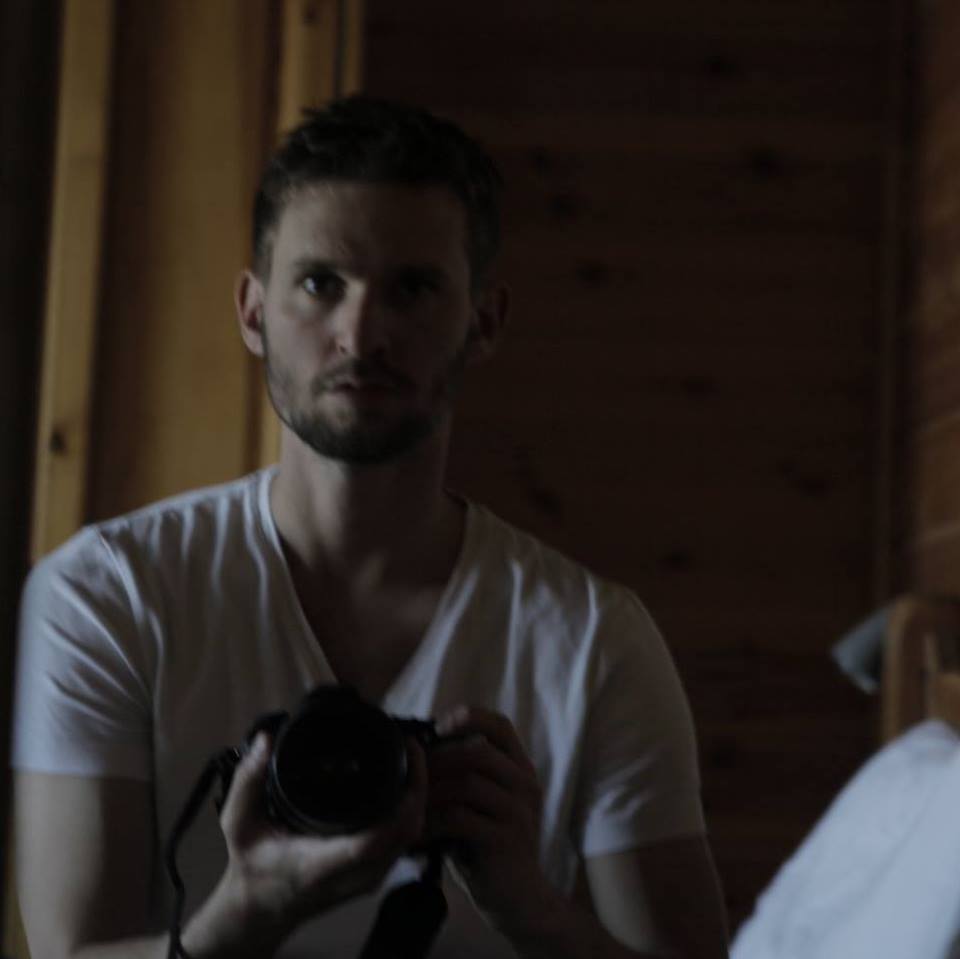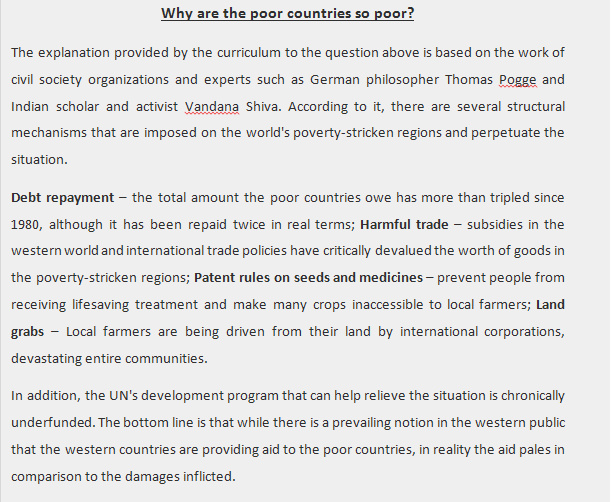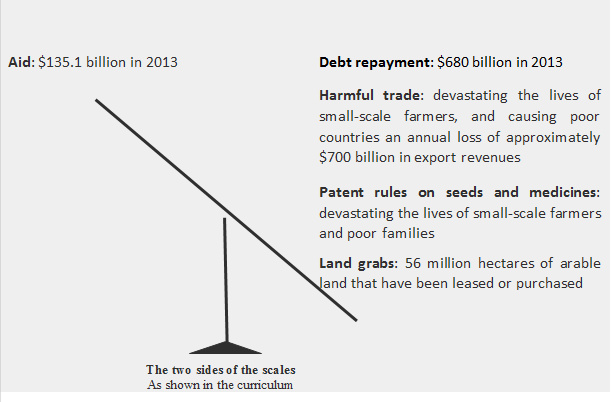Until no man will die from hunger, and no child will grow up in the street by Uri Eytan, Israel
 In 2012, I was a baccalaureate candidate in a sunstruck city in southern Israel, without any clear direction or purpose. One day in March, I heard that an outside speaker was coming to the university to give a lecture about the world’s poverty crisis. This was not something you typically hear about during your studies, so I was intrigued, and decided to go and see what it was about.
In 2012, I was a baccalaureate candidate in a sunstruck city in southern Israel, without any clear direction or purpose. One day in March, I heard that an outside speaker was coming to the university to give a lecture about the world’s poverty crisis. This was not something you typically hear about during your studies, so I was intrigued, and decided to go and see what it was about.
In the small lecture hall, on a short stage in front of 20 students or so, stood a thin man in his 30’s, his hair cut short, and spoke about the catastrophe that is occurring at every second of every minute. His voice was soft and mellow, but his eyes were passionate and his gaze sincere. You could sense, just from this one lecture, that he has intertwined his existence with the sufferings of many faceless men, women and children, whom he will probably never meet.
The man, we will call him Assaf Lev, drove to the university on that warm evening with the intention to recruit students for an educational project he had made his life mission. In a nut-shell, he had developed a curriculum that deals with the harsh reality of the poverty crisis and the actions that can be taken to relieve it, and is trying to incorporate it in high schools throughout the western world. Eventually, he hopes, millions of students will become engaged with the subject and, in a process that will span decades, will help sway public opinion towards the necessary political and economic actions to alter the situation..
This is indeed an ambitious plan, and it took Lev more than a decade to conceive it. For years before, so he told me in a recent skype interview, he felt “like a man who is walking around in the world with bad feelings. That there is a huge crisis that I want to be involved in, but I don’t know how.” His eureka moment finally came 8 years ago, but getting to it was a long journey that started way before that.
The world stood by
Lev was born 41 years ago in central Israel, his mother and father divorced shortly after his birth. Each of the parents started a new family, so he spent most of his childhood with his two Grandmothers, both of them holocaust survivors who carried their baggage with them and passed it on to their grandchild.
“As a child I didn’t understand the situation of the holocaust, but I knew they were holocaust survivors and I’ve seen their suffering. Suffering that even then I knew they were trying to conceal, trying to live a full and healthy life. One of them, for example, was really afraid of falling asleep. I have shivers all through my body when I’m thinking of them. She was really afraid of falling asleep because she knew that during the sleep the memories will come and haunt her.”
Around the age of fifteen Lev began to read extensively about this dark chapter in history, trying to understand what happened to his Grandmothers and to many others.
“This reading became very intense, up to the point that sometimes I would actually skip school to go and read. It started from informative reading about what happened there, and it became reading about questions such as ‘How did an advanced civilization like Germany deteriorate into dictatorship?’; ‘What happens to people in these situations?’; ‘How come most enlightened men and women stood by?’; Would I, as a German, or as a Ukrainian or a Polish, would stand by in face of the persecutions, or would I participate in rescue actions?”
One conclusion Lev drew from his reading was that democracy, despite its flaws, “at least protects us from ourselves.” The second came a few years later, when he was first exposed to the conditional state of people living in the world’s poverty-stricken regions.
According to data from the United Nations and the World Bank (provided by Lev), there are currently 795 million people suffering from hunger and approximately 3 billion people, or 40% of humanity, living in life-threatening severe and absolute poverty. As a result, about 50,000 people die everyday due to hunger or absolute poverty. In addition, there are currently 168 million children forced to work for survival and 133 million children living without adequate parental care.
When he became aware of this reality, Lev’s conclusion was clear – we, as a society, are standing by now, just as the world stood by back then.
“Once I understood this symmetry, it wouldn’t leave me. For me it makes no difference if 6 million people died in 6 years from intended violence or 18 million die every year due to transparent economic violence sustained by several factors, but most people aren’t seeing it and most people are in effect standing by.”
Despite this vivid insight crystallizing in his mind, the actions that could be taken were not so clear.
“For many years I was very scared that this understanding will go away, that I’ll be pulled to a bourgeois, different kind of life. I was very scared of that so I kept trying to maintain this understanding, but I didn’t know what to do with it, frankly, I just didn’t know.”
During his twenties, he studied education, and worked as a teacher for several years. He tried to consciously maintain his previous understandings, and even dedicated time to teach in an orphanage in Africa for a few months, but he felt this was not an effective way for him to act in the world. His frustration increasingly grew – there was a disaster going on right in front of him, but he was powerless to prevent it.
He did teach a college course about Africa, and was able to insert a lesson on the debt problem in the continent and other root causes of the poverty crisis he was beginning to understand (see at the bottom). After giving this lecture for a few semesters, one day in 2008 things finally fell into place.
“While I was teaching, a student from the back seats almost stood on her feet, you could see she was completely roiled. And she said: I can’t believe that this is the first time I hear these things and that I didn’t study them in school. [claps his fingers] it all came together.”
Q: There on the spot?
“Exactly. I think I didn’t sleep that night, it all came together. Years of walking around and not understanding, and feeling bad because you’re touching and not touching, and things are constantly in your space but you don’t know what to do with them – it all came together. And I realized I was going to make these materials accessible to high school students and to teachers.”
Finally seeing what his purpose in life could be, Lev embarked on a year of cathartic effort, as he describes it. He developed the curriculum for a PhD program, and began teaching it in nine classrooms throughout the country. In addition to the theoretical aspect, the curriculum has an important practical component, where students can choose to give a lecture about the material they learned as well as gather donations for UNICEF. Facing the choice, 40 percent of the students chose to participate, exceeding Lev’s highest expectations.
Soon after this year terminated, his doctoral advisors wanted him to change his research and focus more on Jewish ethics. At this stage, in light of the positive reactions he received from students, he was completely committed to the curriculum and there was no way he would let himself be sidetracked. He decided to look for a different doctoral program, but he didn’t imagine it would take him 6 years to find one, nor did he envision the personal prices he would have to pay.
Northern star
To focus on his project, Lev had to quit his job as a teacher. He taught only one college course in the afternoon, and during the day he worked as a security guard, where he could allocate time for the PhD applications and for further developing the program. His family and friends found this behavior odd, to say the least
“A lot of people started viewing me as a man who has lost his mind”, he says. “It was a day to day experience. Sometimes they would say it gently, but a lot of times people would cut off contact with me.”
“Members of my family didn’t cut off contact but started viewing me as a loser. They said: come on, you’ve got a master’s degree in education, you could be a school principal, you could be a high school teacher, you could expand your job in college. You and your spouse are living in poverty – we moved from a one and a half bedroom apartment to a one bedroom apartment. I always earned the minimum necessary, combining the two jobs, but there was no potential for a better standard of living, not to mention saving – And you work as a security guard! I mean, what’s going on with you?”
“So one year you apply and are not accepted, second year – you tell us you got accepted but there was no scholarship available, third year – ok. But six years? They stopped believing me. And that was, day to day, a tough experience, really tough.”
During these six years Lev constantly gathered data and was able to demonstrate that the students are reacting to the program and are becoming engaged, even when the curriculum is being taught by teachers other than him. Despite the many relative hardships he faced, his destination – to reach a point where millions of students will learn about the poverty crisis and the ways to resolve it – did not change.
“It’s like a northern star that you know is there. And as the years go by and we gather more and more evidence, my confidence that it’s possible gets stronger, that with a lot of work we will get there. So the road is never known, the road is always very complex, but the direction is clear. That is where we are going, that is where we are striving to.”
Alongside the positive reactions he received from teachers and students, another thing that kept him going was the support of friends he met along the way. These external factors, however, important as can be, are not enough to maintain such a momentum.
“More than anything, it’s a kind of a daily reflection. You know, people living in the western world constantly know what they are working for. They work for a salary and they compare themselves with people their age, in their area, in their environment. I work for children who are waking up to go to work today, who are growing up alone. These 168 million working children or 133 million orphans, they are the ones I’m working for. So what right do I have to feel any hardship on something like that?”
Eventually, Lev and his partners were able to persuade the Israeli Ministry of Education to embrace the curriculum (which now includes the global climate crisis as well) and the teachers training program he constructed. As a result, 18 teachers already took the program, and 7 of them are implementing the curriculum in their classrooms during this school year.
Last year Lev was also finally accepted to a PhD program in Canada, where he continues to develop the project. He is working on getting the scientific community and civil society on board, so teachers would know that they have strong professional and political backing when stepping into the classrooms.
He still has to earn a living, so soon he will resume working as a security guard, this time during the night.
“These are the prices you have to pay to maintain this course. In Israel it wasn’t easy but it was possible, and here it will be done at night. And, again, these are tiny prices, that’s the small part I can do to help change this situation. While I never forget that the people I work for are the same people we talked about before.”
The human spirit
It can be tempting to dismiss Assaf Lev as a Don Quixote figure, and his ambitious project as a tiny drop in the sea. Perhaps it is true, and in most likelihood when his own life will run its course there will still be hunger and poverty on the face of the earth.
For me, that just makes his story more fascinating and his character more unique. After all, most of us go through life occupied with our own personal worries, consumed by fear and doubt, and here is a man who has waged war against death itself, who wants to rid the world from the injustice embedded in it. For him, inaction is not an option.
Not Don Quixote than, but Camus’s rebel. Fighting with all his might against the cruelty of existence.
Although his eyes are wide open to the reality we constantly fail to see, he remains optimistic about mankind.
“I do believe in the human spirit. I think many people are just unaware of these things and once they’ll become aware, they will act with solidarity and responsibility. If I wouldn’t believe in that very deeply, I wouldn’t act.”




Leave a Comment
Want to join the discussion? Feel free to contribute!